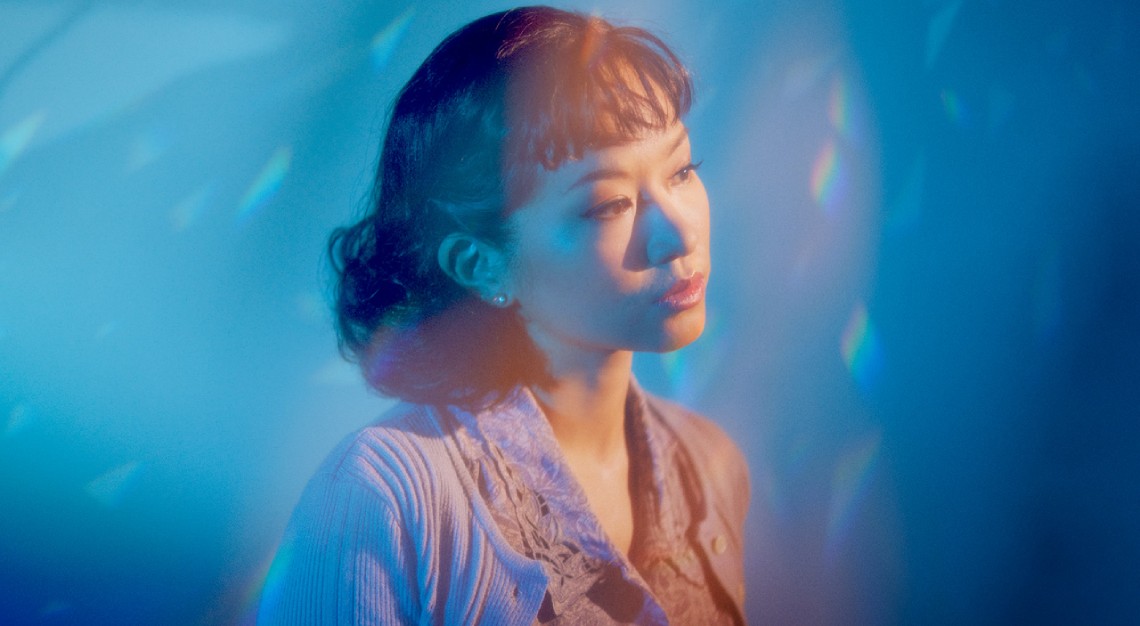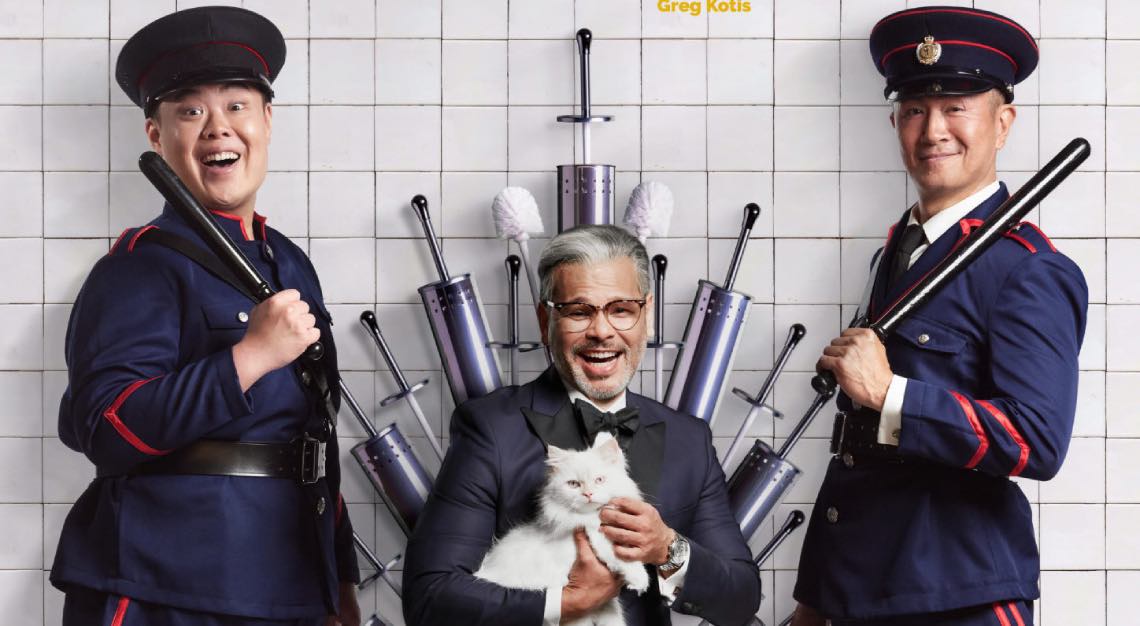Andrew Leci identifies a crack in the glass along with the leakage that prevented the good becoming the great
Tennessee Williams knew what he was doing when he named this play. The titular glass menagerie is an unreal world, created by one of the characters, and encompasses a central theme in this beautifully wrought, often poetic piece.
To an extent then, the action that takes place around what is literally a cabinet containing small glass animals, is of vital importance when trying to understand what Williams was getting at and what he was trying to convey. The scene, therefore, between Laura (Tom/The Narrator’s sister) and Jim (the ‘gentleman caller’) is absolutely key to much of what the play stands for.
It is unfortunate then to report that for me, it’s a scene that didn’t work very well. Not because of the performances, I hasten to add, but because of the choice of representation and direction.
Jim O’Connor is, like every one of the four characters in The Glass Menagerie, disappointed. A star in high school, he’s now working as a clerk in a shoe factory. He has his hopes and dreams and, like Tom, has a chance of fulfilling at least some of them.
He’s not a stupid man and realises that self-improvement will be necessary to get himself out of his dead-end job and make something of himself. Unlike Laura, whose childhood bout of pleurisy leaves her with a disability—painfully shy and retiring as a result—Jim has a controlled bravado that makes him part dreamer, part realist, but with a sense of purpose that Laura can’t even aspire to. Playing this character as a bit of a buffoon, therefore, with almost cartoonish qualities undermines their entire—albeit short lived—relationship. It’s a relationship that, I would maintain, is the most important of the play.
Jim dispenses wisdom and good advice that is honest and well-meant. It’s remarkably personal in the circumstances, but it’s received in good part because it is genuine. With Salif Hardie’s presentation of Jim, it’s almost impossible to take the character seriously. He seems to be more intent on providing comic relief than guiding a gentle, shy and fragile (like glass) character to a position of greater confidence and self-awareness.
It’s such an important series of interactions in the play, as Jim is supposed to recognise Laura’s potential and splendid uniqueness (having identified and highlighted her ‘inferiority complex’) before delivering the sucker punch that breaks hearts—both character and audience alike. We should be thinking of him as a human being rapt in a moment who makes a conscionable mistake out of weakness. In this production, all we can think of him as is a bit of a dick.
All this is, of course, just the opinion of one person, and I’m sure many others will beg to differ. The scene between Laura and Jim was affecting, but this was mostly down to Inch Chua’s exquisitely understated performance and wonderful focus throughout. She never seemed to lose sight of who she was and why she was there, putting in a well-controlled performance that was so much more than the shy girl who meets her high school crush later in life. Stillness on stage while remaining in the moment is a talent, and Chua nailed this aspect of her performance. She said little, but you remain drawn to her for the duration and enraptured by the character’s tragic beauty.
We feel for the loss of her confidence due to her disability and we find ourselves wanting to her to ‘shake it off’ (for want of a better phrase) as per Jim’s well-meant but misguided and slightly impertinent advice. Laura has it in her (whatever ‘it’ is) and this is something that we have to accept and know, otherwise much of the pathos is lost. Jim appears to give her the opportunity to escape from her imaginary world into a brighter future and then almost instantly takes it away. This is the gut-wrenching moment in a play full of moments and mementos, despite the disappointing presents of Tom and Amanda.
Catherine Grace Gardner, as the character Adrian Pang describes as the “martyr mother”, displays all the qualities one would expect from an actor who has been on Broadway and featured in a television soap opera. What’s notable about her performance is the ability to pick moments in which to draw focus, and those in which to settle on the inner fringe. Amanda is a character who is easy to ridicule, and occasionally difficult to have sympathy with. Gardner portrayed her with an admirable lightness of touch, eschewing the potential melodrama while hinting that it’s always just under the surface.
Jamil Schulze, who gets better every time I see him—must be an experience thing – does a very solid job as Tom, the narrator, and in many ways the social commentator of the piece. He yearns to escape his tawdry existence, but he’s a decent fellow and knows that he has to provide for his family, for as long as he can. Williams acknowledged that there was more autobiography in The Glass Menagerie than in most of his plays, and seeing him as Tom at the very start of his writing career is not much of a stretch. Williams flew the coop and did what he thought he was meant to do, just like Tom at the end of the play. What made Schulze’s performance credible was that we understood his motivation and his ultimate decision, and we didn’t blame him for an instant.
The set by Eucien Chia is nothing short of masterful—atmospheric, evocative, even ergonomically precise—with modern tech, used, ironically, to reflect the nostalgia of a bygone age and a glitzy glamour that, for the main characters, only lives in dreams and on the silver screen.
The lighting by James Tan is equally accomplished, displaying a deftness of touch and genuine feel for the poetry and lyricism of Williams’ magical playscript that draws you in to the neurasthenia of the female protagonists and the shattered hopes of the males.
This is a good production, but it’s not a great one, and this reviewer left the theatre almost as disappointed as all four characters who, at various points in the play, recognise with more than a hint of bitterness that their lives aren’t quite panning out as they would have hoped.
“Glass breaks so easily, no matter how careful you are.” says Laura when showing Jim her beloved menagerie. A theatrical performance is also fragile, and very much dependent on key relationships that can make or break. While that between Jim and Laura didn’t work for me simply because of the characterisation, it doesn’t mean to say that the production is not a success.
It is compelling, engaging and the theatrical equivalent of a ‘page turner’. It’s also wonderful that, with restrictions easing, we can see full houses in theatres once again after a long hiatus. The strong have survived, and Pangdemonium has hung in there with bravery and fortitude, still committed to providing excellent entertainment to a population sorely in need of it.






